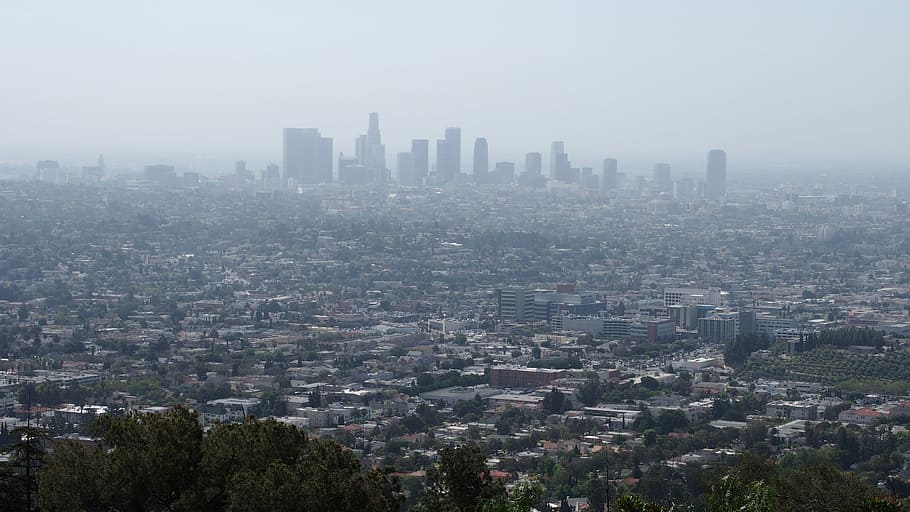FOR IMMEDIATE RELEASE
Wednesday, July 29, 2020
WASHINGTON – Today, Congresswoman Lisa Blunt Rochester (D-Del.), and Senator Tammy Duckworth (D-Ill.) introduced the Public Health Air Quality Act of 2020. The bill would require the EPA to implement immediate fenceline monitoring for toxic air pollutants at facilities contributing to high local cancer rates and other health threats from dangerous pollutants. Joining Blunt Rochester and Duckworth as original sponsors of the bill were Rep. Donald McEachin (D-Va.), Rep. Nanette Diaz Barragán (D-Calif.), Rep. Pramila Jayapal (D-WA), and Rep. Bobby Rush (D-Ill.), along with Sen. Cory Booker (D-N.J.) and Sen. Elizabeth Warren (D-Mass.).
“Knowledge is power. Acting on the data provided by the Public Health Air Quality Act, we can reverse environmental injustices in frontline communities. It can empower those most impacted by air pollution to hold polluters accountable,” said Rep. Barragán. “As lawmakers, we can use this critical data to fight for greater investment to clean up the air and strengthen public health in the frontline and fenceline communities that suffer from dangerous air pollution.”
“In the midst of a global health pandemic which attacks the respiratory system, we’ve seen in incredibly stark terms the compounding dangers of polluted air for front-line communities. But the truth is that these communities have been subject to unsafe air for decades and have suffered the long-term health consequences and complications because of it,” said Rep. Blunt Rochester. “The first step in protecting these communities is figuring out what pollutants they are currently exposed to. Everyone deserves to breathe clean air, and that is what we are fighting for with this bill. I’m proud to join with Senator Duckworth and House & Senate Environmental Justice leaders for this aggressive expansion of our national air quality monitoring program.”
“Black Americans and other communities of color are dying at disproportionate rates during this pandemic, in part because of the long-term, cumulative health consequences and complications associated with toxic air pollution from facilities located in their neighborhoods,” said Sen. Duckworth. “We must do everything we can to protect these fence-line and front-line communities, which is why I’m proud to work with U.S. Representative Blunt Rochester on this important legislation that would help assess the pollutants they are currently exposed to by expanding our national air quality program during this critical time in our nation.”
“Not only are frontline and fenceline communities being hardest hit by the ongoing COVID-19 crisis, but they have also faced the greatest burdens of environmental injustice and structural racism for generations—negatively impacting the health, safety and wellbeing of far too many families,” said Rep. Jayapal. “I’m proud that the Public Health Air Quality Act will expand air quality monitoring in these communities and require public reporting of findings so we are able to turn this unprecedented moment of devastation into real, transformative change.”
“With African-Americans being 75 percent more likely to live near facilities that emit toxic air pollutants, it is clear that systemic racism is not limited to police brutality and the criminal justice system,” said Rep. Rush. “Clean air and clean drinking water are basic human rights. That’s why today I am proud to stand with my colleagues in introducing the Public Health Air Quality Act, which will take critical steps to addressing these inequities by requiring EPA to more aggressively monitor facilities for toxic air pollutants. I am immensely grateful to my colleagues Rep. Blunt Rochester and Senator Duckworth for leading the charge on this important issue.”
“The COVID-19 crisis underscores what the science has shown for decades: dirty air is deadly, increasing risk of respiratory illness, cancer, and heart problems. Frontline and fenceline communities, who are disproportionately exposed to air pollution, must be able to depend on the EPA to closely monitor their air and provide accurate and transparent data to combat the impact of air pollution on their neighborhoods,” said Rep. McEachin. “I am pleased that this bill will expand air quality monitoring and make public air quality data to ensure that all communities have clean air.
The Public Health Air Quality Act of 2020 would:
- Require the EPA to implement immediate fenceline monitoring for toxic air pollutants at facilities contributing to high local cancer and other health threats from dangerous pollutants like ethylene oxide, chloroprene, and formaldehyde within 4 months for at least a two-year period. Air monitoring data and any actions taken using the data must be made publicly available. EPA must update emission test methods and emission factors if necessary based on new air data.
- Ensure that fenceline monitoring and continuous emission monitoring are core components of national emission standards for chemical, petrochemical, and other sources of fugitive toxic air pollution to assure compliance with pollution limits, and so that communities never again have to wonder what is in their air. EPA must issue rules to implement the best available method of fenceline monitoring and corrective action in the high threat source categories with fugitive emissions within one year, applying at least the fenceline monitoring method used at petroleum refineries and where needed to assure compliance or protect public health, using more protective monitoring methods such as summa canisters and optical remote sensing or real-time monitoring technology.
- Require a rapid expansion of the NAAQS or national ambient air monitoring network through the addition of at least 80 new NCore multipollutant monitoring stations in communities where this is most needed to protect people with asthma and other health conditions and from COVId-19. EPA must also assess and report on the status of the entire network and a plan to address all failing monitors and must perform repair and maintenance at broken or failing monitors where this is most needed.
- Deploy at least 1,000 new air quality sensors in communities affected by air pollution and COVID-19 to boost and complement the NAAQS monitoring network and increase communities’ access to information about air quality.
The full text of the bill can be found here.
###

